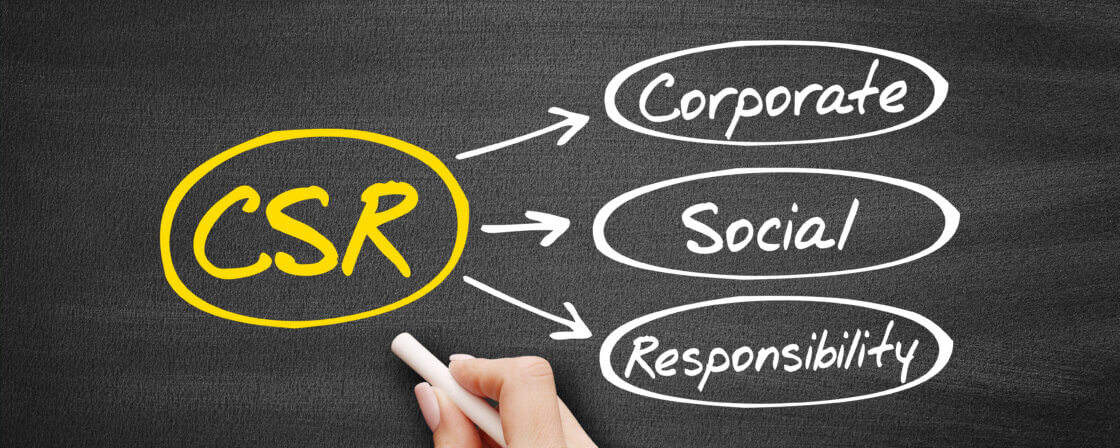Are you solving a similar problem?
Looking for help with setting up corporate responsibility or meeting ESG obligations?
We can help you navigate the legal requirements of CSR and prepare your company for the new European regulations. We will advise on non-financial reporting, set up ethical codes and compliance systems and ensure that your business stands up not only to the law but also to the public.
I want more information
- When you order, you know what you will get and how much it will cost.
- We handle everything online or in person at one of our 6 offices.
- We handle 8 out of 10 requests within 2 working days.
- We have specialists for every field of law.
CSR and law: is social responsibility mandatory?
It is often said that CSR is voluntary. This is largely true, but the situation is changing. The European Union is moving CSR from the realm of soft commitments to legally enforceable requirements, notably through legislation on non-financial reporting and ESG criteria.
The Corporate Sustainability Reporting Directive (CSRD), which will replace the previous Non-Financial Reporting Directive, will make it mandatory for large companies (and gradually medium-sized companies) to report information on sustainability, social impacts and risk management practices from 2024-2026. This includes CO₂ emissions, gender equality, supply chains and human rights.
CSRD therefore represents a major legal step towards greater corporate responsibility, even if CSR itself remains a ‘soft’ concept. However, the obligation to report on ESG factors pushes companies not only to report on these aspects but also to systematically manage them – i.e. to integrate CSR into their business strategy.
Corporate Social Responsibility Association
In the Czech environment, the most visible representative of CSR is the Corporate Social Responsibility Association. This non-profit organisation brings together companies, institutions and individuals who strive to fulfil the principles of sustainable development and contribute to the UN Sustainable Development Goals (SDGs).
What does the Corporate Social Responsibility Association offer companies?
- Education and networking.
- Inspiration and sharing of good practice: by joining the association and attending its events, companies can share their stories with each other and transform their business in a responsible way.
- Quality Mark: Working with the CSR Association helps companies build their reputation.
- Connecting business with the non-profit sector: creating project partnerships.
Both small and medium-sized enterprises and large corporations can become members of the CSR Association. Added value also lies in the fact that members have access to legislative news and consultations on ESG, which is increasingly important in the context of new legal obligations.
Tip for article
Tip: If something isn’t working, you need to change it. And this rule applies in companies too. Company changes, such as mergers and acquisitions, follow clearly defined rules. Learn more about them.
Why is it worth applying CSR?
Companies don’t introduce CSR principles into their daily operations just to make a good impression. It is a strategic decision that can bring them a number of concrete and measurable benefits – from a business, legal and human perspective. Indeed, CSR is slowly becoming a competitive necessity today.
First and foremost, CSR contributes to reputation. Companies that behave responsibly in the long term have a better standing with the general public. Whether they minimise the environmental impact of their activities, actively promote diversity or communicate transparently with customers. Public trust then translates into customer loyalty, who are willing to forgive any mistakes.
CSR now also plays an important role in the assessment of companies in public procurement, tendering and investment decisions. For example, in the construction or IT sectors, it is already common for contracting authorities to assess the environmental and social impact of projects (so-called ESG criteria). And a company that engages in volunteering, strives for environmental certification or sets fair treatment of employees can earn crucial plus points in a tender. In addition, investors increasingly favour projects with a positive social impact.
CSR is closely related to legal prevention and risk management (compliance). A company that has set internal codes of ethics and transparent procedures towards employees and suppliers is less exposed to legal problems, for example in the areas of discrimination, unequal remuneration, violations of trade union rights or environmental accidents or conflicts with environmental laws. With a well-established CSR, a company can proactively prevent potential conflicts, fines and scandals that would impact its reputation. In addition, it is better prepared for scrutiny by government authorities or investors, who nowadays also place emphasis on ESG due diligence.
For today’s job market (especially for Generation Z), salary is no longer the only deciding factor. Employees are increasingly looking for companies that give them a sense of purpose. They want to know that their work has a positive impact and that their employer shares their values. A transparent and value-anchored company can thus more easily attract and retain talented employees, thereby strengthening its long-term competitiveness. CSR can also offer employees specific forms of engagement – for example, opportunities to volunteer during working hours, participate in community projects or work with non-profit organisations. These activities bring higher job satisfaction, engagement and team belonging.
Tip for article
Tip: The sharing trend has already come to housing. Cohousing is a modern form of community living where families share a house. How does it work?
Corporate social responsibility is gaining importance
Corporate social responsibility is no longer a leisure activity or a “nice PR accessory”. It is becoming a strategic part of business. Whether you look at it from an ethical, business or legal perspective, responsibility today means being prepared for the future, for new standards and for society’s expectations. Companies that start acting responsibly earlier gain an advantage.
Summary
Corporate Social Responsibility (CSR) is an approach to business that considers not only economic profit but also the impact on society, employees and the environment. Although CSR remains a largely voluntary activity, thanks to European legislation – in particular the CSRD – it is gradually becoming a legal obligation, at least in terms of sustainability reporting and ESG criteria. But CSR also brings a number of practical benefits for companies: it improves reputation, facilitates access to public procurement and investors, reduces legal risks and increases employee loyalty. In the Czech Republic, the CSR Association is particularly involved in CSR, offering companies support, training and opportunities for cooperation. Overall, CSR is becoming not only an ethical choice but also a strategic tool for future business success.




